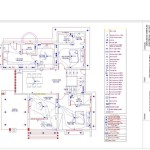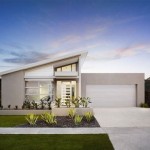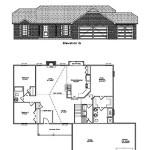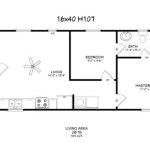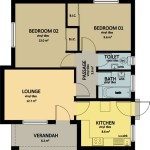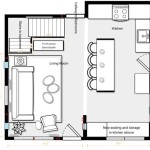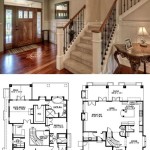Essential Aspects of House Design Floor Plans
Creating a functional and aesthetically pleasing floor plan is crucial for any house design. A well-thought-out plan can maximize space, optimize natural light, and facilitate smooth traffic flow. Here are some essential aspects to consider when designing a floor plan:
1. Functional Layout
The floor plan should cater to the specific needs and preferences of the occupants. Consider the number of bedrooms, bathrooms, and living spaces required. Plan for dedicated areas for cooking, dining, socializing, and relaxing. Ensure that essential rooms, such as the kitchen, living room, and master suite, are easily accessible and interconnected.
2. Efficient Space Utilization
Make the most of the available space by minimizing wasted areas and maximizing storage options. Use space-saving furniture, built-ins, and multi-functional rooms. Consider incorporating open floor plans to create a sense of spaciousness and allow natural light to penetrate deeper into the home.
3. Traffic Flow
Design a floor plan that facilitates smooth movement throughout the house. Avoid creating bottlenecks or dead-end spaces. Ensure that there are clear pathways between common areas, such as the kitchen, living room, and bedrooms. Consider using open floor plans, wide hallways, and well-placed doors to enhance accessibility.
4. Natural Light Optimization
Maximize natural light to create a bright and airy ambiance indoors. Position windows strategically to allow ample sunlight to enter different rooms. Consider using skylights or light tubes to bring natural light into spaces with limited window access. Proper window placement can also reduce energy consumption by utilizing passive solar heating in colder months.
5. Privacy and Functionality
Consider the privacy and functionality of each space. Designate private areas, such as bedrooms and bathrooms, away from frequently used common areas. Ensure that bathrooms offer privacy while maintaining convenient access from bedrooms. Plan for dedicated spaces for home offices, laundry, and storage to keep clutter out of sight.
6. Style and Character
The floor plan should reflect the overall style and character of the house. Consider the desired architectural style, whether it's traditional, modern, or contemporary. The floor plan should complement the exterior design and create a harmonious flow between indoor and outdoor spaces.
7. Integration with the Site
Take into account the site conditions when designing the floor plan. Consider the slope of the land, the presence of existing trees or vegetation, and the surrounding views. Orient the house to optimize solar exposure, minimize wind impact, and capture desirable views. Create outdoor living spaces that extend the living area seamlessly into the surrounding landscape.
Conclusion
Designing a functional and aesthetically pleasing floor plan is an iterative process. By considering the essential aspects discussed above, architects and homeowners can create homes that meet their individual needs, maximize space, and enhance the overall quality of life. Remember that a well-designed floor plan lays the foundation for a comfortable, efficient, and inviting living environment.

House Plans How To Design Your Home Plan

Floor Plans Types Symbols Examples

Small House Plan Ideas For Diffe Area To See More Read It Floor Plans

House Floor Plans Your Best Guide To Home Layout Ideas

Floor Plans Types Symbols Examples

House Design Ideas With Floor Plans Homify

How To Read A Floor Plan With Dimensions Houseplans Blog Com

Affordable Home Design Efficient Floor Plans

Small House Design 2024005 Pinoy Eplans Modern Plans Floor

Home Plan Isabella Sater Design Collection

